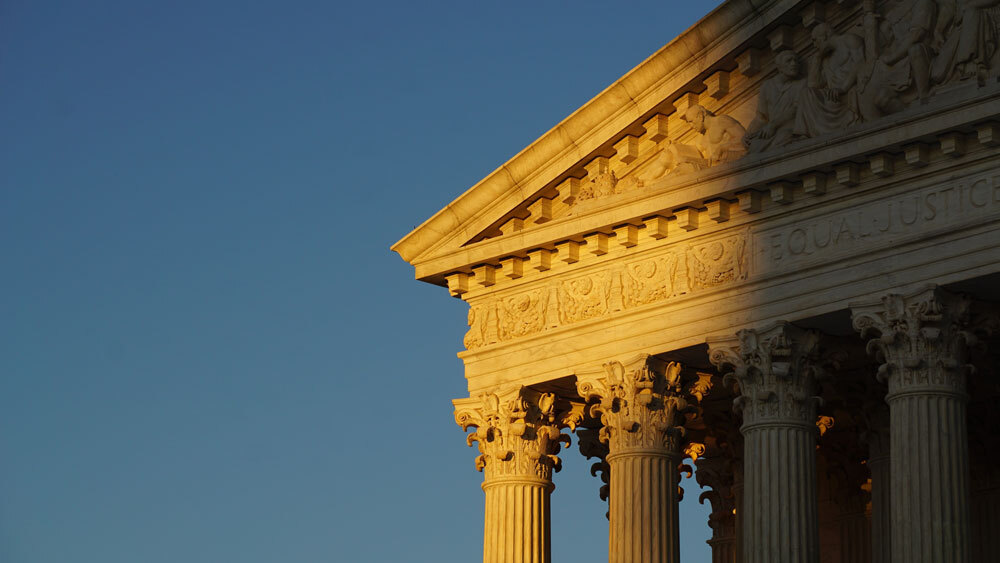
(Ian Hutchinson/Unsplash)
Sometimes, the work of different branches of the federal government offers a study in contrasts.
On Monday, the Supreme Court announced that one of the cases it was going to take up in the current session involved the interpretation of Section 230, specifically in the way that companies used algorithms to recommend content, and whether it made them liable. Gonzalez vs. Google cuts to the heart of what makes the internet possible in its modern form, and depending on how the court rules, it could truly harm the way the internet works.
The case represents a very dangerous edge case that could be significant enough to take the whole machine down. Gonzalez vs. Google is a suit against Google, with petitioner Reynaldo Gonzalez arguing that Google violated the AntiTerrorism Act by exposing his daughter to ISIS recruitment videos fed to her by the YouTube algorithm, which eventually led to her death in the high-profile 2015 ISIS attack in Paris—the same attack that led to the brutal mass shooting at an Eagles of Death Metal concert.
The case is long-running, having first been filed in 2016, and the situation is just enough of an edge case that it could take the Section 230 ship down. YouTube is obviously used by many millions of people, but the fact that what just one of them was watching could have an effect this serious raises some major concerns.
While the algorithm in the case in question was being challenged because it happened to expose one person to terrorism-style content, the potential context of a ruling is broad enough that it could damage things people depend on, like spam filtering. It has reasons to exist that go beyond what this one person saw, even if what it showed her was potentially beyond the pale.
This case seems to suggest that Section 230 may need more controls—and that companies should be more willing to use them. But if liability is a true risk, there are ripple effects that could move far beyond the seemingly limited goals of the specific case.
Not to be lost in the shadow of the decision SCOTUS made on Monday is what’s happening at the Federal Communications Commission, which is taking some decisive action on a common frustration.
https://twitter.com/TonyaJoRiley/status/1576992222461165568
FCC chairwoman Jessica Rosenworcel and others were taking a hard-line stance against aggressive misuse of the phone system for reasons of spam calls and texts. After putting into effect a system called STIR/SHAKEN, which helps to correctly identify whether callers are calling from the legitimately set source, the commission is planning on banning potential bad actors from the phone networks. Per Rosenworcel:
This is a new era. If a provider doesn’t meet its obligations under the law, it now faces expulsion from America’s phone networks. Fines alone aren't enough. Providers that don't follow our rules and make it easy to scam consumers will now face swift consequences.
In many cases the very same people who might fear a decision changing the scope of Section 230 might be cheering on this kind of action from the FCC. And I don’t disagree, but I think in so many ways, it shows the federal government’s might in situations where unwanted communication is taking over a platform.
The federal government, whether through the machinations of the Supreme Court, the power of the legislative branch, or through the federal agencies within the executive branch, has a lot of ability to change the experience of using our communication mediums, in ways both positive and negative. And there are no guarantees that the status quo that we’re used to is going to stay put. Sure, there are reasons the FCC can chime in on the phone system in this way, but not the YouTube algorithm, but in the context of this discussion, it’s just important to note that this broad power exists and, given the right circumstances, it can be used.
The power that the FCC wields in this case may be cheered-on but it would look dangerous in the case of SCOTUS. The contexts we rely on need to be understood as malleable as long as there are political forces willing to challenge them. And while fighting spam on smartphones is nearly universally supported, Section 230 at this time is unfortunately not.
As much as I hate saying it, with the makeup of this Supreme Court, brace yourself for potential changes.
Time limit given ⏲: 30 minutes
Time left on clock ⏲: alarm goes off



